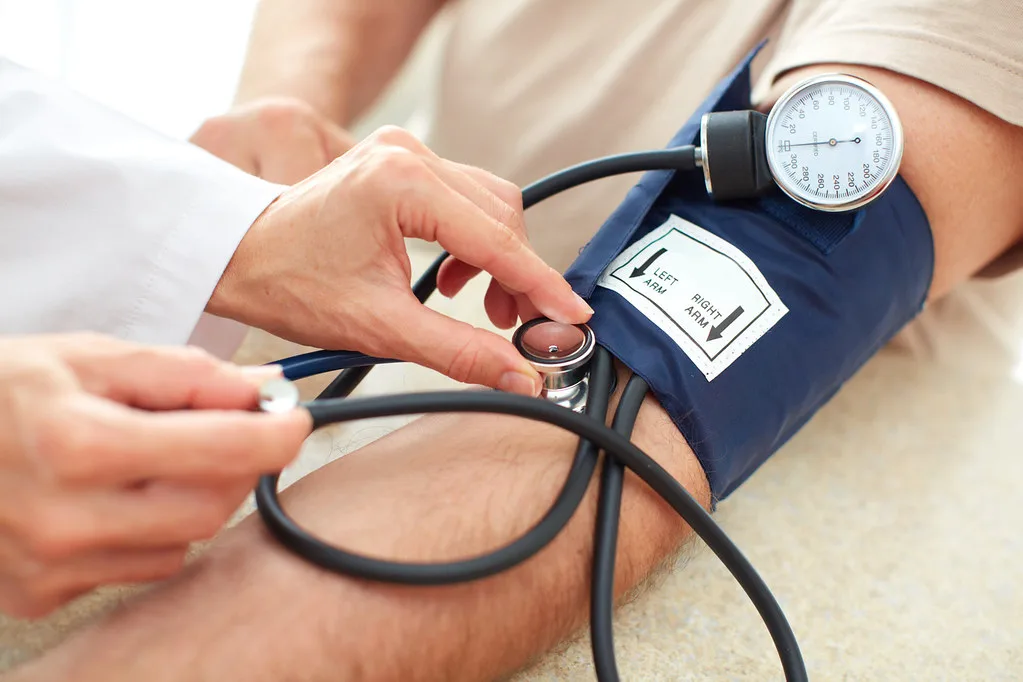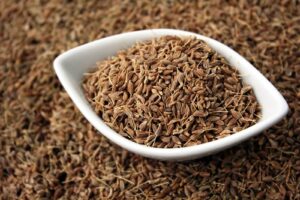High blood pressure, or hypertension, is an illness affecting millions worldwide. It happens when the force of blood on the walls of your arteries is consistently excessive. If left untreated, high blood pressure can cause major health problems such as heart disease, stroke, and renal failure. In this comprehensive guide, we will delve into the various aspects of high blood pressure, including its types, symptoms, causes, diagnosis, ill effects, complications, treatment options, and home remedies.

What is High Blood Pressure?
High blood pressure is a medical condition characterized by elevated levels of pressure in the arteries. The two primary measurements used to diagnose high blood pressure are systolic pressure (the pressure in the arteries when the heart beats) and diastolic pressure (the pressure in the arteries when the heart is at rest). A normal blood pressure reading is typically around 120/80 mmHg.
Types of High Blood Pressure
There are two main types of high blood pressure:
Primary Hypertension: This type develops over time with no identifiable cause. It tends to develop gradually and is often influenced by factors such as age, family history, and lifestyle habits.
Secondary Hypertension: This type is caused by an underlying condition, such as kidney disease, hormonal disorders, or certain medications. Secondary hypertension tends to appear suddenly and cause higher blood pressure levels than primary hypertension.
Symptoms of High Blood Pressure
Common Symptoms of High Blood Pressure
1. Headaches: One of the most common symptoms of high blood pressure is frequent headaches, particularly at the back of the head and in the morning.
2. Shortness of Breath: Feeling out of breath even with minimal physical exertion can be a sign of high blood pressure.
3. Dizziness: Dizziness or lightheadedness, especially when standing up quickly, can indicate elevated blood pressure levels.
4. Chest Pain: Chest pain, tightness, or discomfort may occur as a result of high blood pressure putting strain on the heart.
5. Fatigue: Persistent fatigue or weakness can be a symptom of high blood pressure affecting circulation and oxygen delivery.
6. Vision Problems: Blurred or impaired vision may occur in some individuals with uncontrolled hypertension.
Severe Symptoms of High Blood Pressure
1. Severe Headaches: Intense headaches that come on suddenly and are accompanied by dizziness or nausea can be a sign of a hypertensive crisis.
2. Severe Chest Pain: Chest pain that is sharp, crushing, or persistent should never be ignored and may indicate a serious complication of high blood pressure.
3. Difficulty Speaking: In some cases, high blood pressure can lead to difficulties in speaking or understanding speech.
4. Nosebleeds: While occasional nosebleeds are common, frequent or severe nosebleeds could be a sign of uncontrolled hypertension.
Recognizing Symptoms in Different Age Groups
1. Children and Adolescents: High blood pressure in younger individuals is often related to underlying health conditions or genetic factors rather than lifestyle choices.
2. Adults: As people age, the risk of developing high blood pressure increases, making regular monitoring essential for early detection and management.
3. Elderly: Older adults are more prone to developing high blood pressure due to changes in blood vessels and the heart over time.
When to Seek Medical Help
It is crucial to seek medical attention if you experience persistent symptoms of high blood pressure or any sudden, severe symptoms such as chest pain, difficulty breathing, or vision changes. Early intervention can help prevent complications and improve your overall health outcomes.
Causes of High Blood Pressure
There are Several factors that can contribute to the occurrence of high blood pressure, such as:
Unhealthy Diet: Consuming high amounts of sodium, saturated fats, and cholesterol can lead to high blood pressure.
Lack of Physical Activity: Being sedentary can increase your risk of developing hypertension.
Obesity: Excess fat in the body tightens the blood vessels and puts additional strain on the heart
Stress: Chronic stress can elevate blood pressure levels.
Genetics: A family history of high blood pressure can predispose you to the condition.
Diagnosis of High Blood Pressure
The first step in diagnosing high blood pressure is measuring your blood pressure. This is a simple and painless procedure that can be done in a healthcare provider’s office, pharmacy, or even at home using a blood pressure monitor. Blood pressure is measured using two numbers: systolic pressure (the top number) and diastolic pressure (the bottom number).
Diagnosis Criteria:
Healthcare practitioners identify high blood pressure using several blood pressure measurements obtained over time. The American Heart Association uses the following criteria to diagnose high blood pressure.
Normal: systolic has to be less than 120 mm Hg, and diastolic has to be less than 80 mm Hg.
Elevated: Systolic 120-129 mm Hg, diastolic less than 80 mm Hg.
Stage 1 Hypertension: Systolic between 130-139 mm Hg, diastolic between 80-89 mm Hg
Stage 2 Hypertension: Systolic 140 mm Hg or higher or diastolic 90 mm Hg or higher
Diagnostic Tests for High Blood Pressure
In addition to blood pressure measurements, healthcare providers may recommend further diagnostic tests to assess the impact of high blood pressure on your health. These tests may include:
a) Urinalysis
A urinalysis helps healthcare providers assess kidney function and detect any abnormalities that may be associated with high blood pressure.
b) Blood Tests
Blood tests can help identify underlying conditions such as diabetes, high cholesterol, or thyroid problems that may contribute to high blood pressure.
c) Electrocardiogram (ECG or EKG)
An ECG is a test that records the electrical activity of the heart and can help identify any abnormalities in heart rhythm or structure.
d) Echocardiogram
An echocardiogram is an ultrasound of the heart that provides detailed images of the heart’s structure and function, helping healthcare providers assess any damage caused by high blood pressure.
e) Ambulatory Blood Pressure Monitoring
This test involves wearing a portable device that measures your blood pressure at regular intervals over a 24-hour period, providing a more comprehensive view of your blood pressure throughout the day.
Ill Effects of High Blood Pressure
One of the primary organs affected by high blood pressure is the heart. The increased pressure can cause the heart muscles to thicken and become stiffer, leading to conditions such as heart failure, heart attacks, and irregular heart rhythms.
Impact on the Brain and Stroke Risk
High blood pressure can also have a significant impact on the brain and increase the risk of stroke. When the blood vessels in the brain are damaged due to hypertension, it can lead to a stroke, which is a medical emergency that requires immediate attention.
Kidney Damage and Impaired Function
The kidneys play an important in excreting waste and excessive fluids from the blood. However, high blood pressure can damage the blood vessels in the kidneys, affecting their ability to function properly. This can lead to kidney disease or even kidney failure if left untreated.
Vision Problems Due to Hypertension
The eyes can also get damaged due to prolonged occurrence of high blood pressure. Hypertension can damage the blood vessels in the eyes, leading to vision problems or even vision loss in severe cases. Regular eye exams are essential for individuals with high blood pressure to monitor any changes in vision.
Impact on Blood Vessels and Circulation
High blood pressure can cause damage to the blood vessels throughout the body, affecting circulation. This can lead to issues such as peripheral artery disease, where narrowed arteries reduce blood flow to the limbs, causing pain and potentially leading to infections or tissue damage.
Complications During Pregnancy
For pregnant women, high blood pressure can pose serious risks to both the mother and the baby. Conditions like preeclampsia can develop, which can lead to complications such as premature birth, low birth weight, or even maternal and fetal mortality if not managed effectively.
Treatment of High Blood Pressure
There are two main approaches to managing high blood pressure: lifestyle changes and medication. And the effective management can be achieved through regular monitoring. The goal is to lower blood pressure levels and reduce the risk of complications associated with hypertension.
Lifestyle Changes:
Diet: Reducing salt intake, consuming a heart-healthy diet rich in fruits, vegetables, whole grains, and low-fat dairy, and limiting saturated and trans fats can significantly impact blood pressure.
Physical Activity: Regular exercise, like brisk walking for at least 30 minutes most days of the week, helps lower blood pressure and improve overall cardiovascular health.
Weight Management: Maintaining a healthy weight can significantly reduce strain on your heart and arteries.
Stress Management: Techniques like yoga, meditation, and deep breathing can help manage stress, a contributing factor to high blood pressure.
Sleep: Aim for 7-8 hours of quality sleep each night to support heart health and blood pressure regulation.
Alcohol and Tobacco: Limiting alcohol intake and quitting smoking are crucial for managing high blood pressure.
Medications for High Blood Pressure
In some cases, the doctor may prescribe some medications manage and lower high blood pressure. Commonly prescribed medications include:
Diuretics
ACE inhibitors
Beta-blockers
Calcium channel blockers
Home Remedies for High Blood Pressure
Lifestyle Changes for Managing High Blood Pressure
Diet:
Reduce Sodium Intake: Excess sodium can contribute to high blood pressure. Avoid processed foods and opt for fresh fruits and vegetables.
Increase Potassium-Rich Foods: Potassium helps balance sodium levels in the body. Incorporate bananas, sweet potatoes, and leafy greens into your diet.
Limit Alcohol and Caffeine: Alcohol and caffeine can raise blood pressure. Moderation is key to maintaining a healthy blood pressure level.
Exercise:
Regular physical activity can help lower blood pressure and improve overall cardiovascular health. You should at least go 30 minutes of moderate exercise on almost all days of the week.
Stress Management:
Chronic stress can contribute to high blood pressure. Practice relaxation techniques such as deep breathing, meditation, or yoga to reduce stress levels.
Herbal Remedies for High Blood Pressure
Garlic:
Garlic has been shown to have a positive impact on lowering blood pressure. Make fresh garlic a part of your meals or go for a garlic supplement but since garlic is readily available unless where it is not available , you should prefer fresh garlic over supplements.
Hawthorn:
Hawthorn is a herb used since ancient times to improve heart health. It may help improve blood flow and lower blood pressure levels.
Hibiscus:
Hibiscus tea has been linked to lower blood pressure levels in some studies. Enjoy a cup of hibiscus tea daily as part of your hypertension management plan.
Supplements for Managing High Blood Pressure
Omega-3 Fatty Acids:
Omega-3 fatty acids, found in fish oil supplements, have been shown to have a positive impact on heart health and may help lower blood pressure.
Magnesium:
Magnesium helps regulate blood pressure. Consider taking a magnesium supplement or increasing your intake of magnesium-rich foods like nuts, seeds, and leafy greens.
Home Remedies for High Blood Pressure
Apple Cider Vinegar:
Apple cider vinegar is believed to have various health benefits, including potentially lowering blood pressure. Mix a tablespoon of apple cider vinegar with water and honey and drink it daily.
Beetroot Juice:
Beetroot juice is rich in nitrates, which can help relax blood vessels and improve blood flow. Incorporate beetroot juice into your diet for potential blood pressure-lowering effects.
Olive Oil:
Olive oil is a heart-healthy fat that may help lower blood pressure levels. Use olive oil in cooking or as a salad dressing for its beneficial properties.
Additional Tips for Managing High Blood Pressure
Monitor Your Blood Pressure: Regularly check your blood pressure at home and keep track of any changes.
Keep your Weight in control : Obesity contributes to high blood pressure. Aim to achieve and maintain a healthy weight through diet and exercise.
Quit Smoking: Smoking leads to high blood pressure and risk of heart disease. Seek support to quit smoking for better heart health.
Managing high blood pressure naturally involves a combination of dietary adjustments, lifestyle changes, herbal remedies, and supplements. By incorporating these strategies into your daily routine and working closely with your healthcare provider, you can effectively lower your blood pressure and reduce the risk of cardiovascular complications. Remember to prioritize your heart health through regular monitoring and proactive management of hypertension.
In conclusion, high blood pressure is a common but serious health condition that requires careful management. By understanding the causes, symptoms, and treatment options for hypertension, you can take proactive steps to protect your heart health and overall well-being. Remember to consult with your healthcare provider for personalized advice and guidance on managing high blood pressure effectively.
Frequently Asked Questions
Can high blood pressure be cured with natural remedies alone?
While natural remedies can help manage high blood pressure, it is essential to work with a healthcare provider to develop a comprehensive treatment plan that may include medication or other interventions.
How long does it take for natural remedies to lower blood pressure?
The effectiveness of natural remedies for lowering blood pressure can vary from person to person. It is important to monitor your blood pressure regularly and consult with a healthcare provider to track progress.
can herbal remedies for high blood pressure cause any side effects ?
Some herbs may interfere with medications or can cause side effects. It is crucial to consult with a healthcare provider before incorporating herbal remedies into your hypertension management plan.
Can stress management techniques really help lower blood pressure?
Stress management techniques like deep breathing and meditation can have a positive impact on lowering blood pressure by reducing stress hormones in the body. Consistent practice of these techniques may help manage hypertension.
are supplements for high blood pressure safe ?
Before taking any supplements for high blood pressure, consult with a healthcare provider to ensure they are safe and appropriate for your individual health needs.
Can high blood pressure be cured completely?
High blood pressure is a chronic condition that can be managed but not necessarily cured. With proper treatment and lifestyle modifications, it can be controlled effectively.
What are the long-term effects of untreated high blood pressure?
Untreated high blood pressure can lead to serious health complications, including heart disease, stroke, kidney damage, and vision problems.
Is high blood pressure hereditary?
Genetics can play a role in the development of high blood pressure. A family history of hypertension ,puts you at a greater risk of developing the condition.
Can stress cause high blood pressure?
Chronic stress can contribute to high blood pressure levels. Managing stress through relaxation techniques and mindfulness practices can help lower blood pressure.
Are there any natural supplements that can help lower high blood pressure?
Some natural supplements, such as garlic extract, fish oil, and hibiscus tea, have been studied for their potential effects on lowering blood pressure. However, it’s essential to consult with your healthcare provider before taking any supplements.
Disclaimer: This article is only for informational purposes and not a medical advice, consult a medical practitioner incase of a medical emergency or an ailment.
The Complete Guide To A Healthy Heart
Reference: http://www.webmd.com







